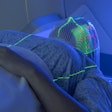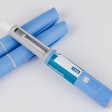
NEW YORK (Reuters Health), May 25 - Use of drug-eluting stents rather than bare-metal ones reduces the likelihood of revascularization in MI patients without an increase in the risk of death or another MI, a meta-analysis of trial data suggests.
Several reports have indicated that drug-eluting stents reduce the risk of restenosis, but in one study, their use was tied to increased risk of cardiac events and mortality during short-term follow-up.
To sort out the risks and benefits of drug-eluting stents for acute MI, Dr. Vincenzo Pasceri, from San Filippo Neri Hospital in Rome, and colleagues analyzed data from seven clinical trials comparing these stents with their bare metal counterparts. A total of 2,357 patients were enrolled in the studies and follow-up ranged from eight to 12 months.
The investigators report their findings in the May issue of the American Heart Journal.
The rate of major cardiac events, which included death, MI, or target lesion revascularization, was 17.6% with bare-metal stents compared with 9.3% for drug-eluting stents.
However, further analysis revealed that only revascularization rates differed significantly between the groups: 4.8% for drug-eluting stents versus 12.0% for bare-metal stents, a risk reduction of 60%.
The corresponding rates of death or MI were similar in the two treatment groups at 5.8% and 6.9%. Rates of stent thrombosis at one year were also similar in each group, hovering around 2.5%, the report indicates.
"Drug-eluting stents can greatly reduce incidence of revascularization in patients with acute MI, without any evidence of additional risks at one-year follow-up," the authors conclude.
Still, not everyone is reassured by the current findings.
"The study by Pasceri et al demonstrates what drug-eluting stents are well known to do, that is, reduce the need for repeat revascularization procedures." However, they "have not, contrary to their conclusions, dispelled safety concerns of drug-eluting stent use during an acute MI," Dr. Anthony A. Bavry and Dr. Deepak L. Bhatt, from the Cleveland Clinic in Ohio, comment in an accompanying editorial.
"Evidence of harm may only become evident with longer follow-up of additional patients. Moreover, the differences in real-world patients with acute MI who likely have higher medication noncompliance than those enrolled in randomized trials and the risk of stenting into the necrotic lipid core of the acute coronary syndrome lesion cannot be overlooked," they add.
Last Updated: 2007-05-24 16:07:01 -0400 (Reuters Health)
Am Hear J 2007;153:719-720,749-754.
Related Reading
Drug-eluting stents reduce subsequent MI frequency and mortality, February 22, 2007
Copyright © 2007 Reuters Limited. All rights reserved. Republication or redistribution of Reuters content, including by framing or similar means, is expressly prohibited without the prior written consent of Reuters. Reuters shall not be liable for any errors or delays in the content, or for any actions taken in reliance thereon. Reuters and the Reuters sphere logo are registered trademarks and trademarks of the Reuters group of companies around the world.


















